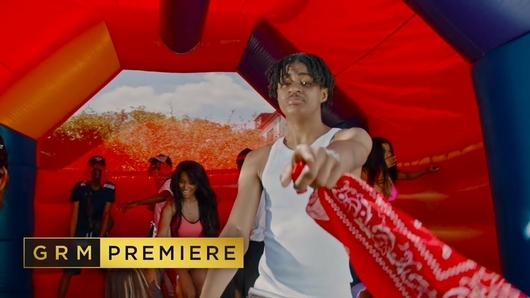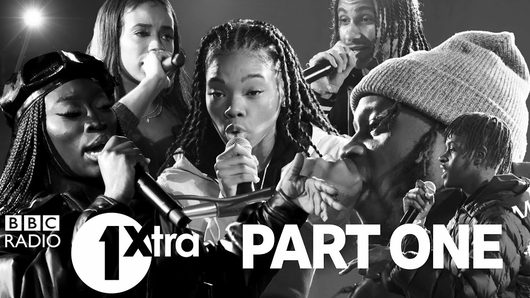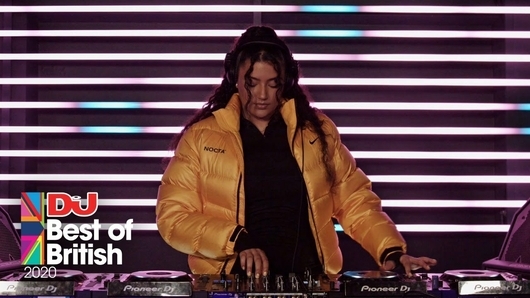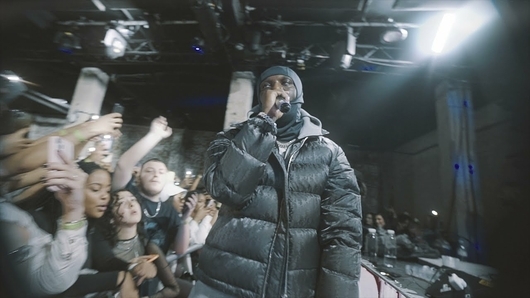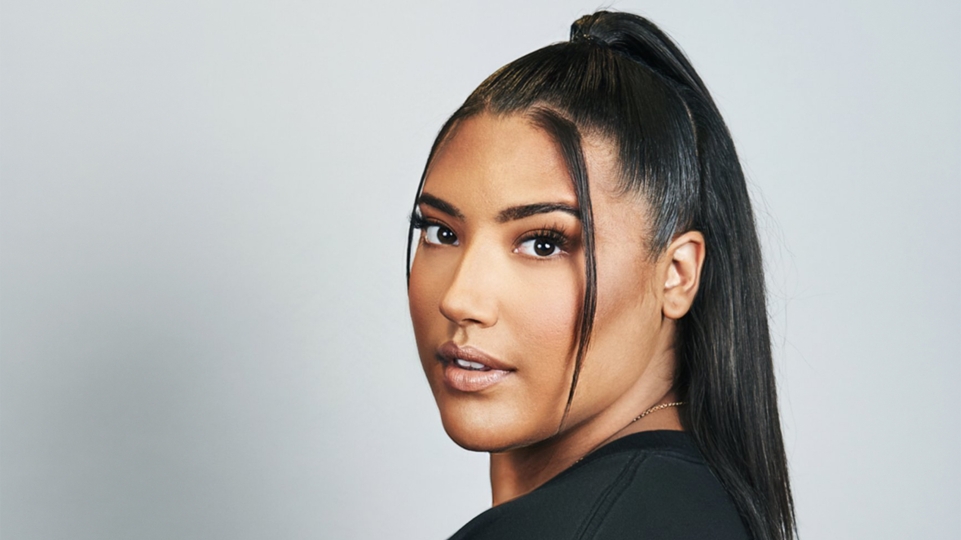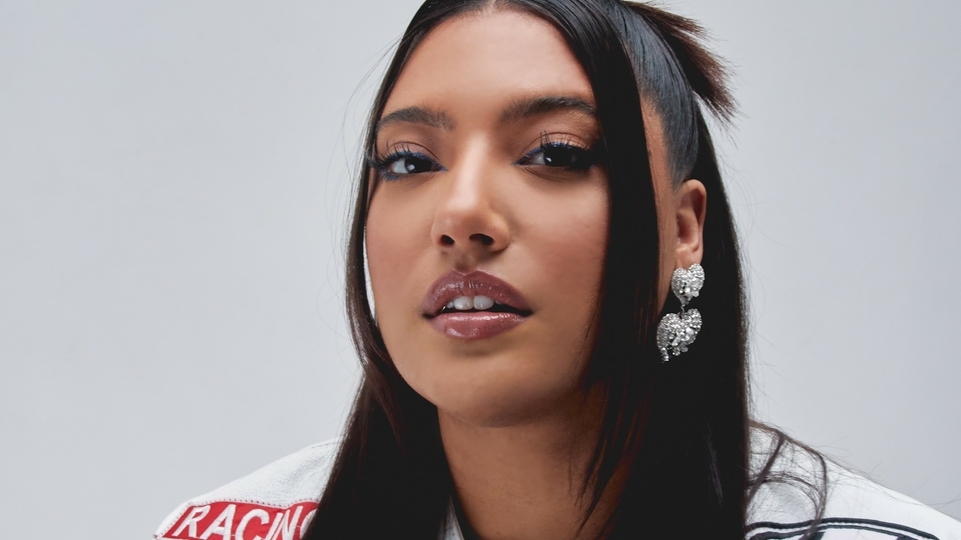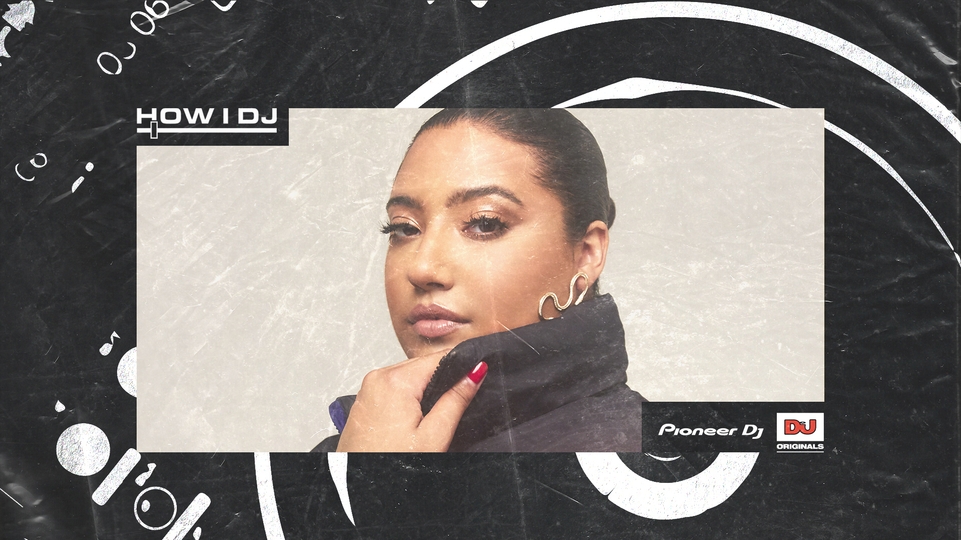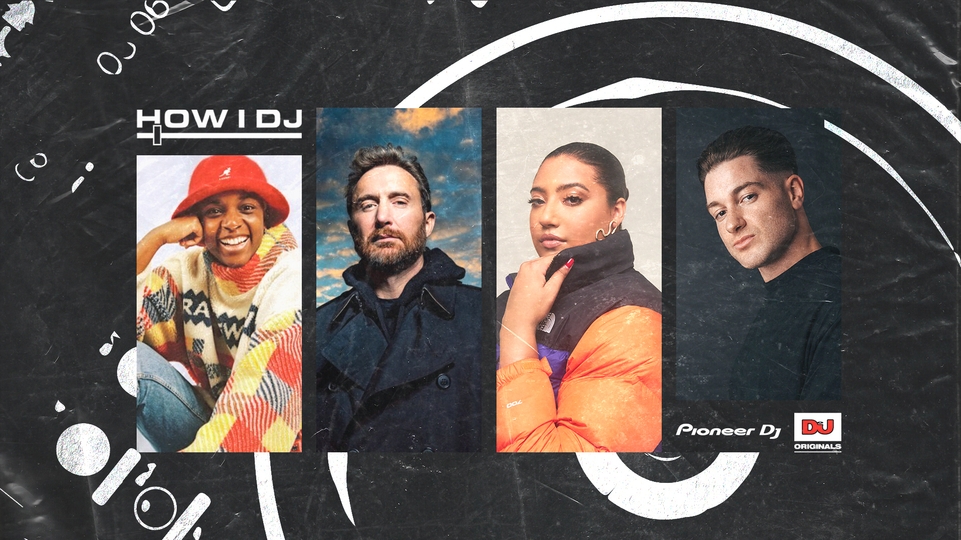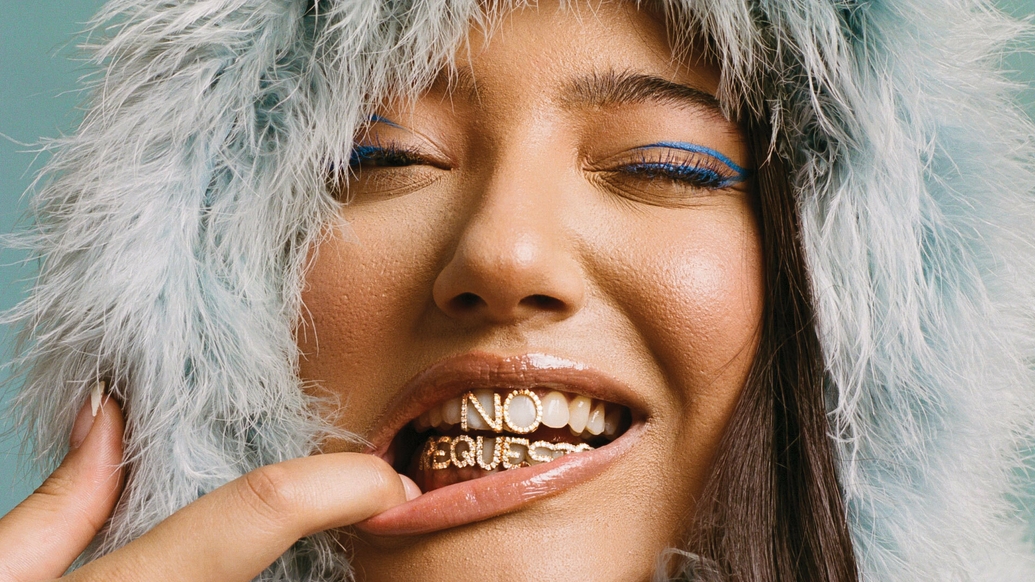
Tiffany Calver: no requests
Tiffany Calver is redefining the role of the rap DJ. As well as helming the influential Rap Show on BBC Radio 1Xtra, she hosts club nights, runs her own label, and DJs for superstars. But, as she reveals to Christine Ochefu, her journey to the top hasn’t always been easy
When Tiffany Calver was a child, her mother made sure she knew exactly who she was. “It was a standard in my house; my mum would always ask me, ‘Who are you?’” she remembers, smiling. With a video camera in hand, her mother would often chat to her at home. Tiffany still watches the tapes back now. “She’d make me look in the mirror and say it; I’d shout, ‘I’m Tiffany Calver!’”
Those playful moments would become an exercise in establishing self-belief. “All of these things made me very sure of myself to the point that I have this invisible armour on me,” she says. “Regardless of whether something makes me uncomfortable or not, I will pursue it. I will persevere, because I belong there.”
Over a Zoom call from her home in London, Calver drifts in and out of stories about the music she loves, her friends in the industry and the people she’s met along the way, all while cracking self-deprecating jokes in a breezy tone. It’s easy to see why she’s made so many connections; she’s lively and affable, with an enthusiasm that radiates through the computer screen.
Tiffany Calver is a tastemaker who’s reshaping the role of the rap DJ. She’s best known as the presenter of The Rap Show on BBC 1Xtra, which runs every Saturday night from 9pm till 11pm. She also runs her own club night, Tiffany Calver and Friends, which has featured guests such as Little Simz, AJ Tracey, Pa Salieu and slowthai, among others. And then there are the touring shows, supporting superstars like Jay-Z, Beyoncé and Drake; the Canadian rapper even co-hosted a one-off broadcast of The Rap Show with her.
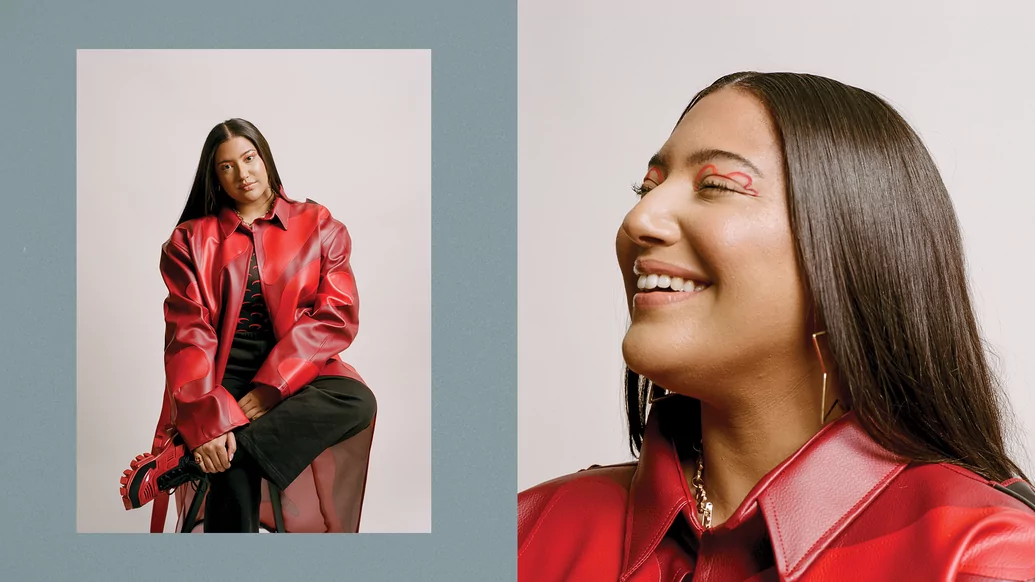

Recently, Calver has taken on another role. In 2021, she launched No Requests, a record label that’s “set up to be able to tap into the resources” of major distributors and labels like Virgin and Polydor. “As the [UK rap] scene is becoming more established, it’s clear, especially from speaking to the artists and people around me, that they all have different requirements when it comes to what they need from a label,” Calver explains.
“Whether it’s time, teams, creative input, money — it all changes significantly from artist to artist and project to project. I believe in having options. Some artists want a major label backing [them], and others prefer the independent route — and I wanted to be able to provide homes for both.”
Through No Requests, Calver has released music by Afrobeats artist Curtis J, with 2021’s ‘Check Your Balance’, drill rapper Bandokay, with ‘Slide’ and ‘Praise The Lord’, and Nottingham rapper M’way, with ‘We Did’ and ‘Run It Up’, the latter out this month.
The label’s newest signing, Adz Heartless, is another rising star, who brought his low-slung melodic flow to Calver’s ‘Abbey Road Cypher’ this January. A six-person-strong performance recorded live at the legendary Abbey Road Studios for BBC 1Xtra, the cypher has been praised by fans as representing the true essence of the contemporary scene, with a focus on evolving drill flows; a British answer to the wildly popular, make-or-break cyphers associated with Stateside platforms like BET and XXL.
It’s all part of Calver’s desire to push a new generation of UK rap stars across digital media — but she’s not interested in shouting about hitting blowout, end-of-year streaming figures. Rather, the label is an opportunity for artists looking to “get their foot in the door” of an often opaque industry. She runs us through the ins and outs of the label’s operations with speed.
“Not everyone has the privilege of having managers who spent 10 years at record labels, managers who know what they’re doing,” she says. “Some of them are from outside of London, literally have their mate managing them, and have no clue what to do and who they can learn from. So I sit on the fence, I provide both [roles].”
It might sound clichéd, but she genuinely cares about the artists. “I feel like I’m probably going to be super broke when I’m 90 years old, because I’m not an executive or an A&R in the way of ‘Don’t speak to me, just send the music’,” she quips. “I’m so involved in all of their lives. I know their mums and everything.”
In a climate where new rap talent is often discovered through fast-moving social media, and with a broadening landscape of independent-focused digital platforms — there’s the long-established SB.TV, as well as breakthrough successes like GRM Daily, Mixtape Madness, Link Up TV and PressPlayMedia — Calver is still wedded to the traditional process of working with artists she loves, and whose music moves her regardless of metrics. “Potentially everyone that does business with me might have a heart attack if they read this, but I don’t look at TikTok or algorithms or streams — I don’t really care! It’s purely a gut feeling.”
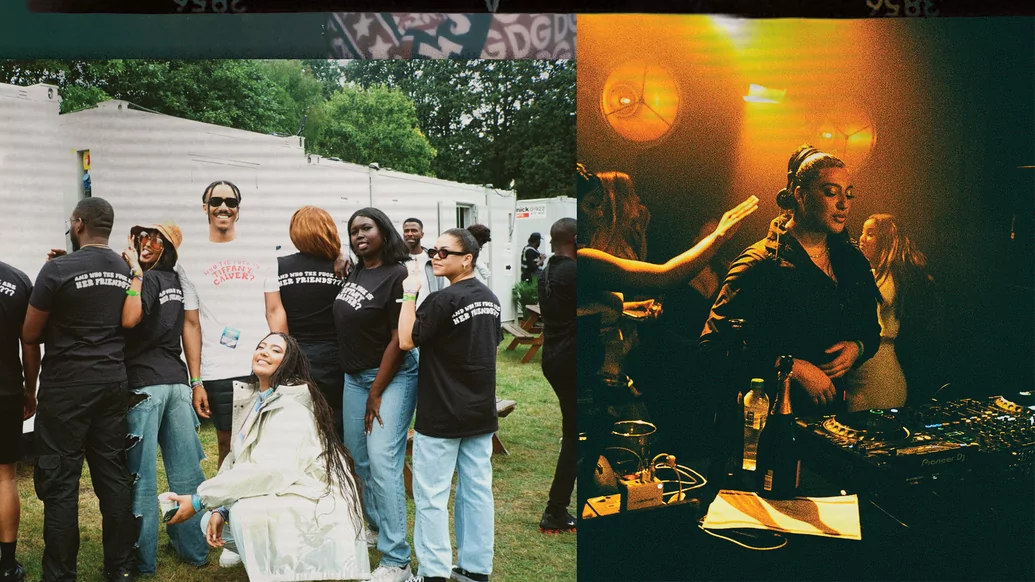

“That’s the joy for me; discovering someone and sharing it with an audience that may have never heard it before. And if they have, there’s a connection between the two; it feels like the world’s biggest secret at the time and you both get to enjoy that"
Calver is a self-professed “music nerd”, with a knowledge that often reads as encyclopaedic. We talk about rappers like Coventry’s breakout star Pa Salieu and Atlanta rapper Young Nudy, and her eyes light up when we mention our excitement at hearing her recommend the latter during one of her radio shows. “Oh my God, Young Nudy!” she exclaims. “That’s the joy for me; discovering someone and sharing it with an audience that may have never heard it before. And if they have, there’s a connection between the two; it feels like the world’s biggest secret at the time and you both get to enjoy that. I love that feeling of sharing something; to me, that’s what I love radio for.”
It’s this love that makes her an advocate for traditional radio in a world where digital is becoming the primary source for music discovery. She remembers being driven back from school hearing Zane Lowe, feeling “addicted to his opinion” and his zeal for his selections. “That’s something that makes me still believe in radio in this digital cosmos of Apple Music, Spotify, Deezer, Napster,” she says. “That’s a lovely way to explore, but I’d rather listen to Gilles Peterson, Benji B, Zane Lowe or Annie Mac — the cheat codes of ‘this is cool’. Radio is all about sharing why that record’s amazing, or why it’s the hottest in the world. I can’t get that from a playlist.”
Moving across live DJing and radio, she’s still learning how to flex her expertise in each role. On The Rap Show, she’s a genre specialist who goes in deep on a track’s story, maybe getting “two choruses out of a record” and time to verbally sell it to the audience.
“When you’re DJing live, you don’t do that,” she stresses. “Unless it’s a classic, you DJ like it’s on fire; you are mixing the tunes very fast and keeping everyone’s energy up.” For DJing, she developed her skills by watching friends play at club nights she’d go to in her teens. “They’d be turning to me like, ‘What do you think I should play next?’ Getting to look at the crowd and seeing how they react to things was pure joy for me.”
For Calver, DJing is a careful dance of observation, a balance between her own preferences as a music head and what she knows the audience are going to love. She often selects in the moment. “I still don’t know what I’m gonna play whenever I go anywhere,” she says. “Whether it’s an arena, a festival or a little club in Barcelona — I don’t have a plan. I know the first song I’m going to press play on, then I look up at the crowd and figure it out from there.
“DJing has definitely taught me about compromise,” she continues. “I’m such a passionate person when it comes to music, but you have to learn that it’s not all about your taste and what you love, especially if you’re playing to 20,000 people. If they want to hear some of the most generic, basic songs because it makes them happy, play that record. But you might also play one for yourself. It’s a relationship. It’s a transference of energy, and I love it.”
Tiffany Calver was born and raised in Telford, a small town in the West Midlands. “Have you ever watched Shameless?” she says, when we ask her about her experiences there. She jokingly runs through her memories of growing up there, some of which she’s not so fond of; an abundance of grass, sheep, racism, high teenage pregnancy rates (once the highest in the country, she points out) and “ASBO’s coming out of our eye-cracks”.
Living somewhere sleepy, reserved and suburban made a mark on her, especially since her ambitions were inspired by a racial and cultural heritage that was largely absent in her surroundings. “I remember growing up and feeling completely out of place,” she says. “I felt uncomfortable until I came to London. I was really happy then, because I was just like, ‘No-one gives a fuck’; I don’t exist here in that way. I can go to a random pub and no one’s looking at me like, ‘What the fuck are you doing here?’”
She wasn’t wedded to her hometown’s music scene, but becoming a music lover was inevitable. She honed her musical tastes through her parents. From her mum, it was the classic R&B, garage and jungle of the ’90s and ’00s, with artists like Lil’ Kim, Tupac, SWV and En Vogue on rotation. She spent her childhood driving down to pubs where her mother and friends would hang out, playing UK garage as soon as school was out until it became pitch black. Her mum even bought turntables and tried her hand at DJing garage records with a friend.
“Their DJ names were wild, I want to tell you but that can’t be in print,” she says. Tiffany’s mum had her when she was 19 years old, so she still had a zeal for the party scene and sounds of the day. “She was living her life. She was young, literally becoming a grown-up, and she loved to party and loved music. It was just a concert in my house. I have the craziest baby video soundtrack ever.”
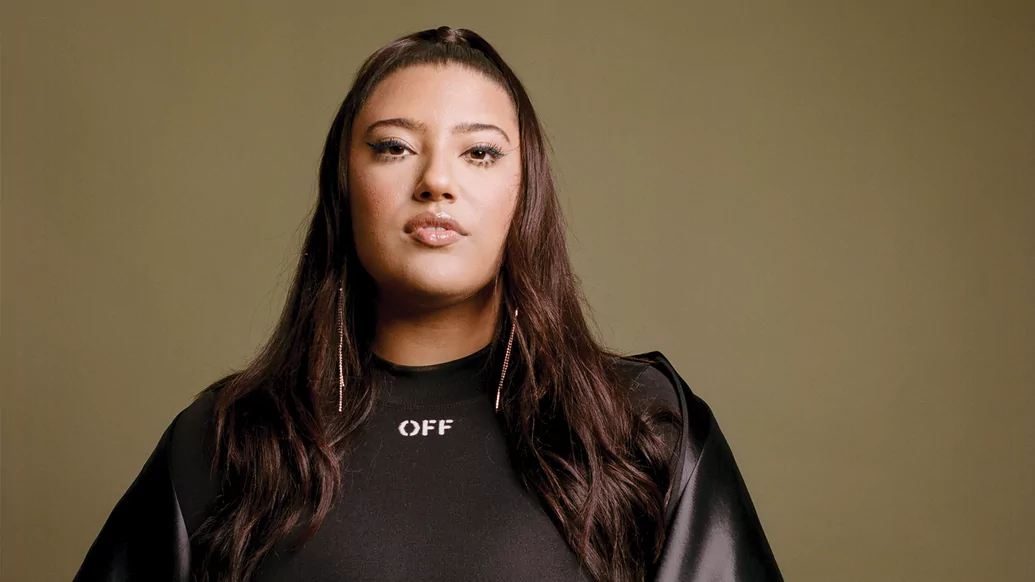

Her dad favoured the boom-bap side of classic hip-hop, spinning Pete Rock and A Tribe Called Quest alongside soulful house records. In a way, he’d been her original music curator; a recreational DJ himself, he’d make her mix CDs to listen to on her way to school filled with everything from heavy metal to dance music. It was a bonding experience for them.
“He’s got such an eclectic taste in music. He showed me how to use Ableton as a kid, and I started making disco mixes, remixing Atlanta rappers like Lil Scrappy with Egyptian Lover and weird shit like that. I’m so fortunate, because I got the cheat codes, in a way; a lot of DJs have to discover that on their own. I was fed it from birth.”
She hadn’t wanted to be a DJ straight away, though. Instead, she channelled her music ambitions into dreams of being on TV and radio; her childhood dream was to present T4, Channel 4’s youth-focused pop show. “I had no idea about all of these different things you could do because the only thing I ever saw was people on TV. Then I wanted to be on the radio, because that and music went hand in hand. I thought, ‘My life will just be based around going to gigs and festivals!’” she giggles.
But being from outside London, finding her way into the industry proved difficult. “I used to have all of these different articles saved, like the BBC apprenticeship and ‘how to get into radio’, all of these traditional tricks and tips of how to become a presenter — which don’t work, by the way.”
She spent her days emailing radio stations as a teenager in Telford. The only station that emailed her back was Rinse FM, who let her come down and record a pilot — which she’d never hear back from, either. “People like Jamz Supernova, Annie Mac, all of these other icons, they have that classic story of learning how to be a producer and growing that way, then they got the opportunity in the seat. I got jack shit.”
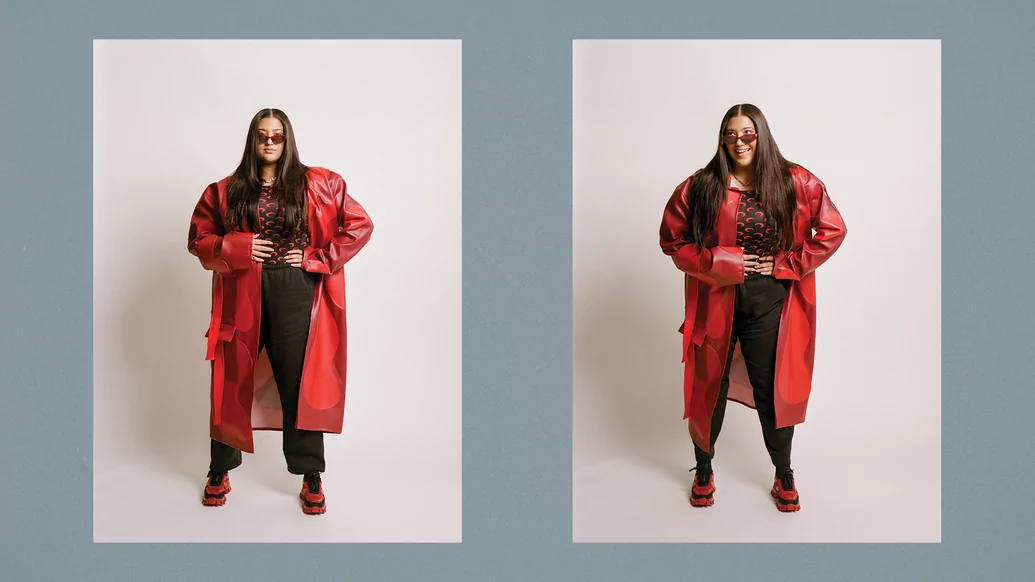

Outside of music, she had a knack for writing and an interest in fashion. On her 16th birthday, her mother surprised her with a trip to New York; she’d entered her into a competition to attend a week of fashion talks and seminars headed by Teen Vogue, where she’d hear people like Anna Wintour speak. It inspired her, but not in the way she’d intended. On the way home, Tiffany realised that the only path she cared to take was music.
“I was so inspired by the fact that Wintour hadn’t followed this traditional route, especially being from the suburbs. That was the first time I’d heard someone talk about just going about it on their own, throwing themselves into work experience from the ground up,” she says. “But I was like, ‘I don’t know if fashion’s for me’, because if I had to do it for free or throw myself into it without breathing, I think I’d quit. But I would literally live on a mattress on the floor and eat noodles to just be involved in music, to be fucking happy.”
Desperate to leave Telford, she attended City of Westminster College after secondary school. By then, her dad had also relocated to London for his work, so she moved into his Shoreditch flat. She spent her lunch breaks writing her own music blog and emailing writers and editors she admired, to which she rarely got responses. But eventually, she did; Amaru Wilcox, who ran the blog Amaru Don TV, gave her some early opportunities, like interviewing rapper Obie Trice.
From there, Calver’s story reads as a domino effect of chance encounters, recommendations, hard work and good luck. She had a big brother figure in musician Jacob Banks who suggested she move into PR, so she interned at then-emerging company Wired PR; headed by Rachel Campbell, Wired is now a hugely influential agency, representing Stormzy, Digga D and Little Simz. Through Wired, she met the street team working for Soulection, a Los Angeles-based music, events and fashion platform. She hit it off with Ta-ku, a hip-hop producer who had links with streetwear outlet Hypebeast; Ta-ku introduced Tiffany to editors who worked on their music site, Hypetrak, so she could write more widely about rap music.
At 18 years old, it was also Tiffany’s introduction to the bustling rap cultural programming of mid-2010s London. She remembers going to parties like License 2 Trill, in the now-defunct Dalston venue Visions. She made friends with people like Ciesay, founder of Places + Faces, and rappers like Danny Seth, who “had a friend who was just starting a physical and online radio station,” she says. “He gave me his email — and he actually replied, so I went to Radar Radio.”
London station Radar Radio was a hub for aspiring DJs and performers like Calver, but it closed in 2018 after allegations of allowing an environment of misconduct and sexual harassment against employees. Calver sighs at the mention of the name. “I used to be so proud of that,” she says. She doesn’t excuse the environment at the station, but she acknowledges the impact it had by granting her something she’d never had in the area: an opening.
“It was the first time I had access. I couldn’t afford a controller, let alone CDJs. It was the first time someone had been like, ‘Here are the keys and tools if you want to learn’. And I think that’s the story for a lot of people; Radar was the first place to actually open the door to us,” listing fellow DJs Kenny Allstar, Snoochie Shy and Amy Becker, whom she met during her time there.
Around her bi-weekly Friday night broadcasts, Tiffany saw cyphers and grime sets from who we now know as the next generation of UK rap; MCs like Novelist, AJ Tracey and Stormzy. That same year, she launched Tiffany Calver & Friends, her club night programming live performances from underground rappers and vocalists alongside her own DJ sets.
Tiffany didn’t stay at Radar Radio for long, though. She moved to a bi-weekly show on Dalston favourite NTS Radio, which she ran for a little over a year before being invited onto KISS FM in the summer of 2017. Not only was it her big move from digital to FM broadcasting, but it set a new milestone for KISS FM, too: 23-year-old Tiffany became the first woman to have a national rap show on the station, an accolade she’s still proud of.
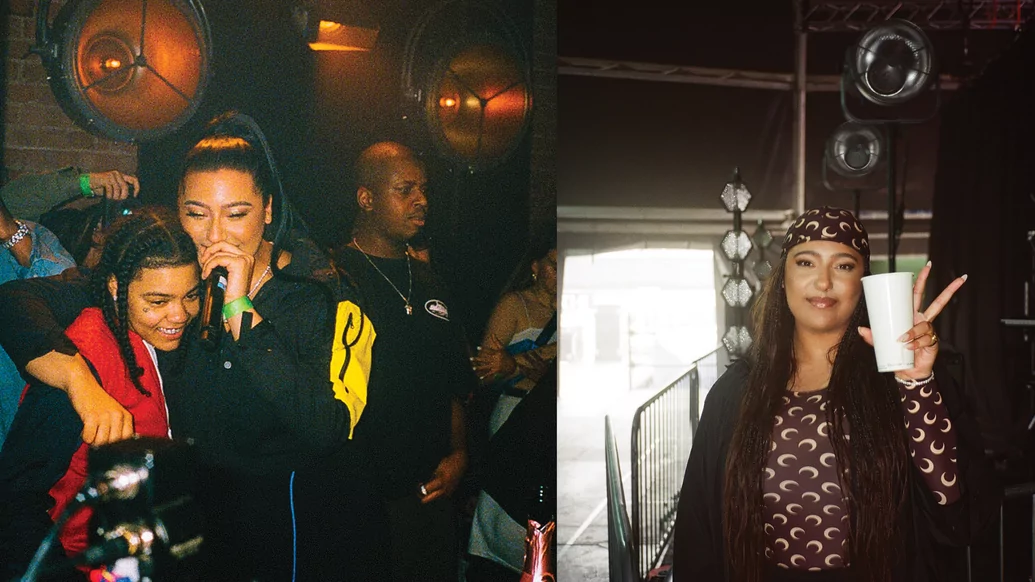

“The uncomfortability of wanting to go into spaces and just do something I was passionate about and be completely degraded — I hate that culture so much. And that’s not just rap, that’s all genres. If you’re a woman, you’re a placeholder. You’re a plus one. You’re never thought of as an equal”
In 2018, Tiffany got a direct message on social media: it was from Mark Stipple, the then-head of BBC Radio 1Xtra. Around the time, rap heavyweights DJ Semtex and Charlie Sloth had announced their departure from the station, so 1Xtra were looking for hosts to replace them. Stipple was interested in Tiffany’s work and wanted her to audition. “I always say that all my life changing opportunities have come from DMs, I wish I was joking,” she smiles.
Out of sheer nerves, she thought she’d flopped while recording her pilot, but she was offered the job nonetheless. After making history on KISS FM, she hit a new milestone again: the first woman to ever host BBC 1Xtra’s flagship rap broadcast, The Rap Show.
“I grew up listening to Tim Westwood on Saturday nights with my mum, it’s where I discovered all of the artists I idolised. When they told me I got the job, I said yes, had a cry and did a cartwheel — literally, in that order!”
Calver has some serious “firsts” against her name, and she’s proud of her achievements, but she’s acutely aware that being a woman has always been a “large subject matter in her career,” she says. “As much as I joke about the annoyance of the question of ‘being a woman in a male-dominated industry’, it is a boys’ club,” she emphasises. “It can be very uncomfortable. It can be scary at times.”
The issues she used to face in her younger years — being ignored in studio sessions, being offered opportunities only when “laden with innuendos” – have lessened as she’s become more of a public figure, she says. But she’s visibly frustrated by what she was forced to go through.
“The uncomfortability of wanting to go into spaces and just do something I was passionate about and be completely degraded — I hate that culture so much. And that’s not just rap, that’s all genres. If you’re a woman, you’re a placeholder. You’re a plus one. You’re never thought of as an equal.”
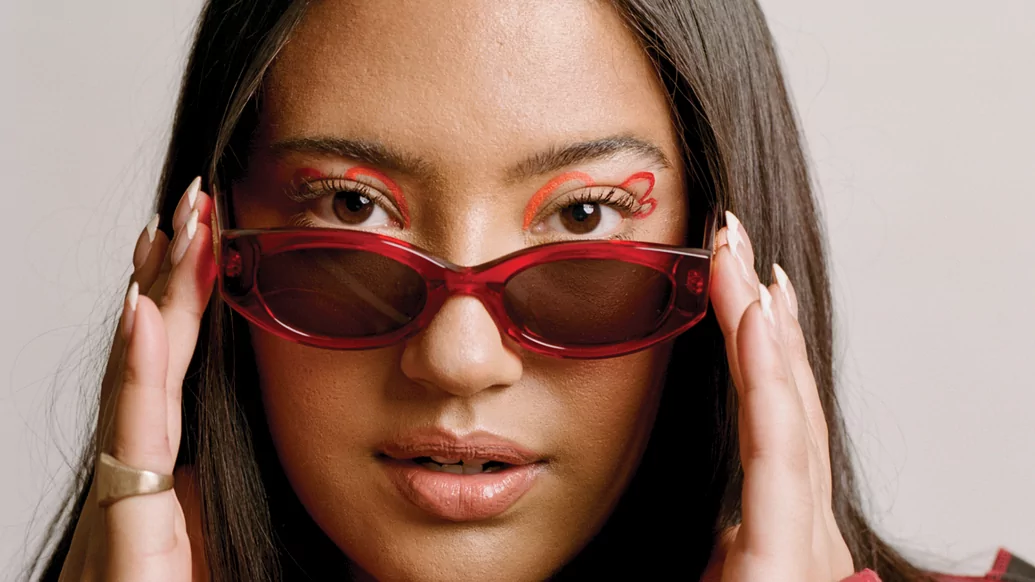

When she joined the BBC, she found the exposure to misogyny especially jarring; as a national public figure, it felt heightened, more extreme.
“I took that show over from such a big character, a very loud white man. Putting a very tall, nerdy, mixed-race girl in there... it was the most pressurised thing,” she remembers. “It’s like, ‘Go, you be the face of change’.” She found people having “an opinion on you, on things you can’t change about yourself” especially taxing: “Like having breasts, or being a woman, or being Black, or being tall — things that shouldn’t matter.”
It affected how she felt doing her job. “I’m doing the same press run as Semtex, Charlie, and Tim, but I’m flirting, I must have slept with the artist,” she says, dryly pre-empting people’s readings of her. “I definitely tried to dim my femininity, because I didn’t want to be sexualised. I just wanted people to hear me and see what I was doing. To see I had talent and respect me. And it turns out that even if you don’t put make-up on, hide your boobs and wear pyjamas even to DJ, people will still think you fucked your way to the top.”
Now, Calver throws off such comments as ignorance. She’s learned to ignore hostile views through therapy. But the scars of past experiences are still there. “I’ve experienced things that I will never publicly speak about. But I know it should have never happened. I’d have loved it if I could have gone and spoken to someone about it.”
Now, she wants to make sure that what she went through isn’t the standard for other young women coming up behind her. She dreams of starting a phone hotline or anonymous service to report inappropriate behaviour, and where people can get connected with support, advice or counselling. It would help, she feels, in making the industry a more “equal playing field”. “I’d like people to question if they should make someone feel uncomfortable too, because there are consequences. Unfortunately, that’s how life works."
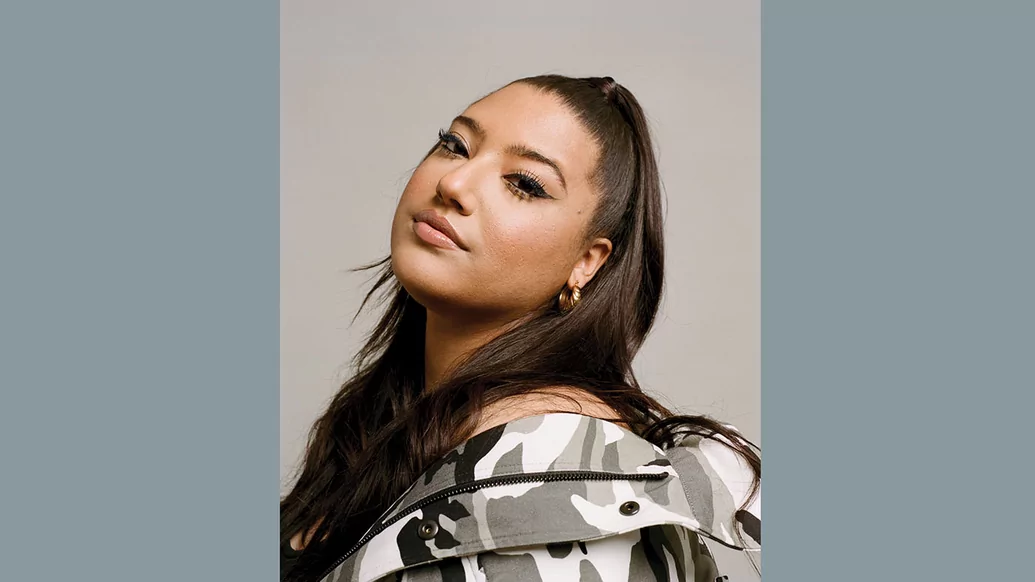

“My goal is to contribute to the infrastructure of the music business in the UK for Black artists, to see how my ideas and connections can help”
Over the past decade, we’ve witnessed a cultural explosion of Black British music and culture in the UK: from the resurgence of grime and popularity of genres like drill, Afrobeats and Afroswing, to the interest from national media platforms in the audiences and capital to be gained from working with Black creators. In this landscape, hosts and artists like Calver are expected to work across multiple forms of media to connect with audiences.
Nowadays, accordingly, DJs aren’t just selecting hot new records for radio and club sets. They’re also social media personalities, TV presenters, A&Rs, label owners — sometimes more. Being multifaceted — a brand, even — isn’t just an interesting after-effect of Calver’s experience as a niche music head working in national media. If she wants to be successful, it’s expected of her.
But Calver has never wanted to be a brand. She’s got the character for it; she describes her music with the passionate, bodied tone of DJs and presenters decades her senior, and has found major success as a cultural figure with a roster of brand partnerships and deals, including Nike, JD Sports and Havana Club. But she visibly bristles at the word.
“I can’t be a character — it makes me want to gag,” she says. “When I first got my show, I struggled with the fact that I had to try and figure out what’s the ‘brand’ of Tiffany Calver. That’s something I’ve struggled with.”
The boisterous, talkative personality in front of the camera is only one side of her, she says. As a more introverted person who struggles with anxiety, she prefers to strategise for others rather than herself. It’s this attitude that runs through her label, her radio show, her club nights — being a person that connects others to rap culture, the only caveat being that, sometimes, to get the job done, she has to be upfront rather than behind the scenes. “My goal is to contribute to the infrastructure of the music business in the UK for Black artists, to see how my ideas and connections can help.”
Despite the incredible growth of Black British music and media in recent years, there’s still work to be done. The lack of industry access hasn’t improved much since Tiffany was a teenager, she says. And even in her position now, she sometimes struggles. “There are many things I want to do that I still don’t have the opportunity to do because there are a lot of old traditions and mentalities in place,” she says.
She’d love to make documentary films, for one. Over the past five years, she’s looked into producing discussion-led explorations on “difficult” subjects within rap music, like sexuality, LGBTQIA+ and female rappers, identity, race and misogyny, but she’s found it difficult to get films on these subjects greenlit by the industry. “Within rap, we’re told that these are ‘uncomfortable conversations’, so I want to do documentaries on those subjects. I’ve pitched for them, but I’ve been told that I need a TV profile in order to do a documentary. I don’t know what that means.” She pauses and her high mood dips slightly. “I’m not gonna go and do a Keith Lemon to [be able to] do a documentary on mental health.”
She’s frustrated, and hasn’t figured out a way around the obstacles yet, but she’s also undeterred. She cites the creation of outlets like GRM Daily, SBTV, NTS Radio and No Signal as reactions to similar issues, like “gatekeepers who won’t let us on television”.
“I think the entire backbone of this incredible surge in interest in the Black music industry, especially in hip-hop, comes off everyone building their own doors to walk through,” she says. If anything, the challenge inspires her. After all, she’s spent the majority of her career working around the no’s.
Now, at 27 years old, Calver has achieved many of her teenage dreams. Her record label is the most recent project she’s excited about, but she’s just as excited about growing Tiffany Calver & Friends as a club night, and the latest rap mixtape in her collection, ready for broadcast. It seems like she’s at the top of the mountain already. What else is there to dream of? At this, she goes quiet.
“I’ve spent my entire life thinking, ‘I want to reach this goal’, and then I reached it so early on in my life,” she admits. “I went through a kind of existential crisis because... where do you go from that? Everyone thinks that achieving your dreams makes your life just bliss, but it’s actually a kind of hell. You work so hard to do these things because you think that, when you’ve completed the mission, everything’s going to be perfect.”
She remembers how it felt to be on the way up: sofa-surfing, making new friends, “topping up each other’s Oyster cards because no one can afford anything, but we all have these crazy dreams”. She realised, suddenly, “that it’s the journey that matters. It’s about the things you’ll look back at and think, ‘Fuck, that was so much fun’.”
